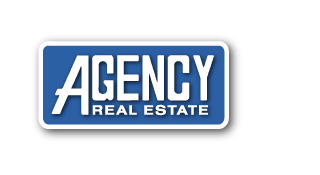#7 Getting Your Mortgage
Researching and talking with mortgage companies prior to submitting an application is important. Find out what their loan programs are, requirements for down payment and any fees or incentives available. You are in essence paying the lender for the use of their services—ask questions and make sure you get the answers that you need.
Mortgages may be obtained through a mortgage company, bank or credit union. Your real estate agent can provide you with a list of reputable lenders or refer you to a specific lender that will suit your individual needs.
Many home buyers seek out a lender for pre-approval or pre-qualification prior to beginning their home search. This preliminary process will help you save time by focusing on homes that are in the price range that you can afford and for which you can qualify. Pre-qualification is a lender's opinion based on the financial information that you provide and is not verified. A pre-approval carries more weight. During the pre-approval process, your credit, bank references and employment have all been verified and a letter is written, which reports that you are qualified for a loan and the amount.
The Mortgage Loan Application
The credit report is the primary resource for obtaining a mortgage. Prior to applying for a mortgage, obtain a copy of yours. Review it carefully for any errors or inaccuracies. The higher your credit score, the lower your interest rate. Make sure to immediately correct any mistakes.
If the lender has not already done so as part of a pre-approval process, it will verify your employment and bank accounts as well as obtain and evaluate your credit report. Next, your lender will request several pieces of information from you so that they may determine your financial fitness and loan eligibility. They will ask for such historical information as:
- Pay stubs
- W-2 forms
- Bank, retirement accounts and investments statements along with account numbers, names and addresses
- Credit card account numbers, amounts due and monthly payments
- Auto loan account numbers, amounts due and monthly payments
- If you are self-employed or have commission-based income, they will require balance sheets and tax returns
Your lender will require you to sign an authorization that allows verification of the information that you have provided. They will request a copy of your credit report and ask for copies of the purchase contract and the earnest money deposit check that you have submitted. The timing of the loan verification process depends on the type of mortgage for which you are applying as well as several other factors. Ask your lender how much time your approval will take.
Lenders have several legal obligations to you, as the borrower. They must inform you of the mortgage's annual percentage rate (APR) within three business days of your loan application submission. Your lender must furnish you with consumer information on adjustable rate mortgages, if applicable. Additionally, the lender must provide you with an itemized good faith estimate of your costs and fees associated with every aspect of the loan.
Appraisal
The lender will order an appraisal to determine the market value of your home. The home must appraise at a certain value and percentage of the loan for you to gain loan approval. Your loan will require private mortgage insurance (PMI) if your down payment is less than twenty percent of the value of your home.
Interest Rates
Negotiation may be key in obtaining the ideal interest rate for your mortgage. Many lenders set interest rates that are non-negotiable, however keep in mind that the mortgage lending industry is a business just like any other. The lender wants and needs your business and is working in a competitive marketplace. Comparison shopping for loan rates in combination with points and educating yourself about the market, will help you bargain from a position of strength.
Locking in Your Mortgage Interest Rate
A lock-in is a lender's promise to hold a certain interest rate and number of points over a specified period of time for a borrower. Locking in your mortgage rate might help ensure that what you shop for is what you get. The terms you are quoted when first contacting the lender, may not be the terms available to you at closing. You may be able to protect yourself against increasing rates during a time of rising interest rates. Lock-in rates are typically 30 to 60 days in length and should guarantee your rate, terms and points. You may be able to lock in at the time of your loan application, when the loan is approved or later, depending on the lender.
Points
Points are additional charges imposed by the lender. They are also used to reduce or buy down your mortgage's interest rate. These charges are typically prepaid at the time of closing, but sometimes are added to the mortgage, depending on the loan. One point equals one percent of the loan amount.
Annual Percentage Rate
The annual percentage rate, or APR, is a standard calculation used by lenders. Designed with the intention of helping borrowers compare various loan options, it is the yearly interest rate paid by the borrower, taking into account points and other costs. The APR discloses the real cost of borrowing by incorporating all fees, points and rates into one single rate. You are then able to easily compare loans with different terms and fees.
Your Credit Report
The credit report is the primary resource for obtaining a mortgage. If you have not already done so prior to applying for a mortgage, obtain a copy of yours. Contact one of the three major credit reporting agencies for a copy of your report. Each of them will provide instructions on reading the report and disputing inaccuracies.
- Experian- 800.311.4769
- Equifax- 800.685.1111
- Trans Union- 312.408.1050
Review your report carefully for any errors or inaccuracies. The higher your credit score, the lower your interest rate. Make sure to immediately correct any mistakes that you find. Legally, negative information may appear on the report for seven to ten years.
Credit problems are the primary reason that potential buyers are not approved for a loan. The credit score measures the risk and likelihood that the borrower will repay the loan. Repairing credit issues is not easy. Lenders will examine your report for collection activity, bankruptcy, missed credit card payments, loan defaults, bankruptcy, nonpayment of taxes and judgments for non-payment of child support.
Private Mortgage Insurance (PMI)
Private mortgage insurance, or PMI, is a type of insurance that protects the lender and is required if the down payment on a home is less than 20 percent of the sales price or its appraised value. Generally, once the loan principle reaches less than 80 percent of the value, the requirement for PMI will terminate.
Typically, the first year's payment of PMI is paid at closing and placed into escrow. After closing, the premium is included in the monthly payment with the mortgage. For more information pertaining to PMI, talk to your lender.

